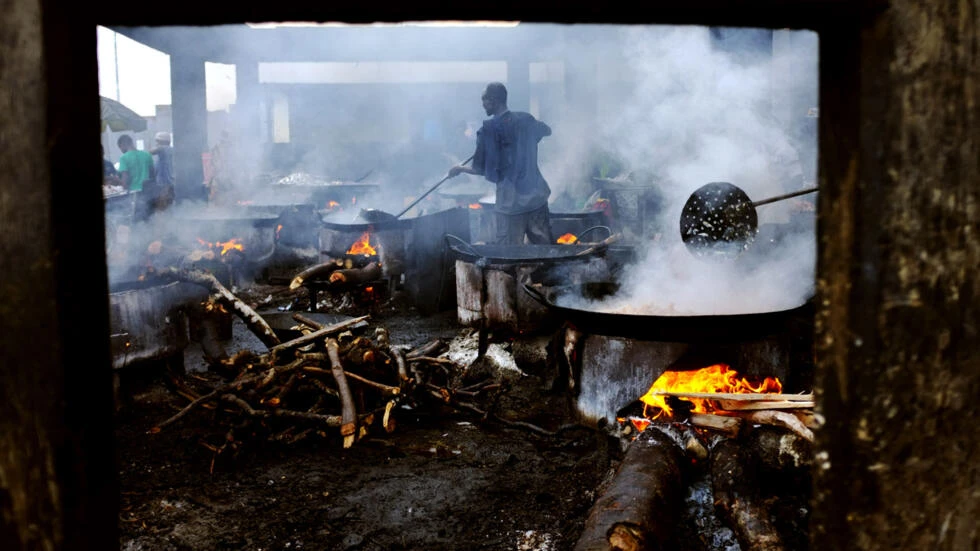Bid to end deadly cooking methods which stoke global warming

Stay tuned with 24 News HD Android App

Fifty countries are meeting in France on Tuesday to discuss the lack of access to clean cooking methods worldwide which causes millions of deaths every year and fuels global warming.
Some 2.3 billion people across 128 countries breathe in harmful smoke when they cook on basic stoves or over open fires, according to an International Energy Agency (IEA)-African Development Bank (ADB) report that sounded the alarm last year.
It said 3.7 million people a year die prematurely from harmful cooking practices, with children and women most at risk.
The IEA said the "unprecedented" Paris gathering aims to be "a moment of changing the direction", its sustainability and technology director Laura Cozzi told journalists.
The problem "touches on gender, it touches on forestry, it touches on climate change, it touches on energy, it touches on health," added Cozzi.
A third of the world cooks with fuels which produce harmful fumes when burned, including wood, charcoal, coal, animal dung and agricultural waste.
They pollute indoor and outdoor air with fine particles that penetrate the lungs and cause multiple respiratory and cardiovascular problems, including cancer and strokes.
These cooking practices are the third highest cause of premature deaths in the world and the second highest in Africa. In young children, they are a major cause of pneumonia, experts say.
They also prevent women and children from accessing education or earning a wage, as they spend hours looking for fuel.
The meeting at UNESCO's headquarters will primarily focus on Africa and aims to garner financial backing for a major push on the problem.
Huge 'bang for its buck'
Greenhouse gas emissions from using basic stoves and deforestation from collecting wood also contribute hugely to global warming.
Switching to clean cooking methods, such as LPG or electric cooking, would save 1.5 billion tonnes of CO2 a year by 2030 -- roughly the amount emitted by ships and planes last year, according to the IEA.
Subsidised LPG and free stoves in China, India and Indonesia led to a decline in people without access to clean cooking between 2010 to 2022. But the same was not true for Africa.
Four out of five households in sub-Saharan Africa still rely on highly polluting cooking fuels and the situation is getting worse.
"We're seeing a lot of concerted efforts that are yielding benefits in Kenya, Ghana, Tanzania," said IEA expert Dan Wetzel.
"But really what we see is that population growth is outstripping the progress there."
The funds needed are a fraction of global investment in energy, the IEA pointed out. The estimated $8 billion needed annually worldwide is less than one percent of government spending on energy measures in 2022.
Of this sub-Saharan Africa would need $4 billion. Current worldwide investment in clean cooking is about $2.5 billion.
"Dollar for dollar, it's hard to imagine a single intervention that could have more bang for its buck in terms of health emissions and development than this," Wetzel said.
Such financial support is essential as many African households cannot afford a suitable cooker or fuel.
But the IEA also recommends strong national leadership as well as grassroots efforts to change social norms.
